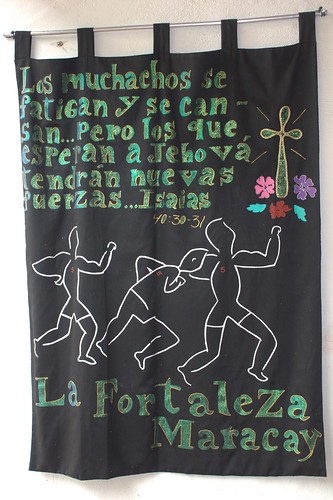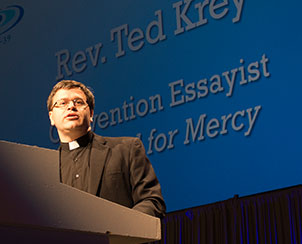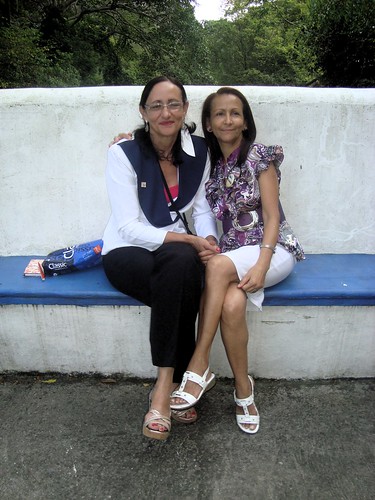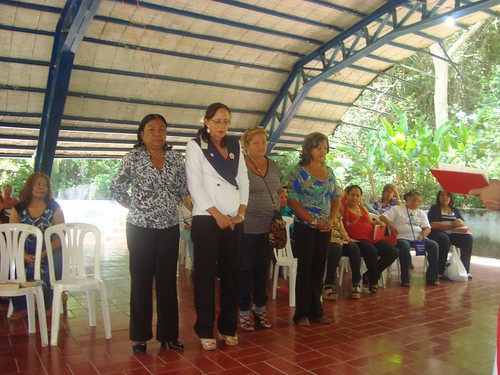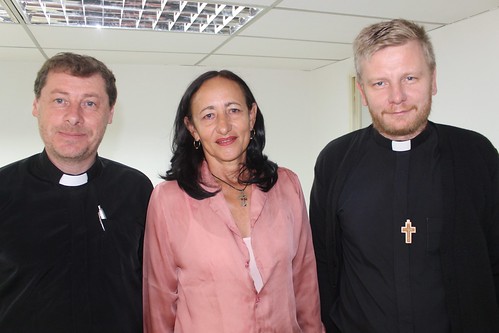 |
| Carlos Schumann, Luz Maria and Sergio Fritzler. |
From July 1 to 4, 2015, Luz Maria and I attended a seminar on the pastoral office conducted in Caracas by Sergio Fritzler of Concordia Seminary in Buenos Aires, Argentina; Carlos Schumann of the Confessional Lutheran Church of Chile and a representative of Luther Academy; and Sergio Maita of Cristo Rey (Christ the King) Lutheran Church in Maturin, Venezuela, who is now a missionary from Venezuela to the Dominican Republic. The theme was the pastoral office, but we started with the concept of vocation in the Christian life.
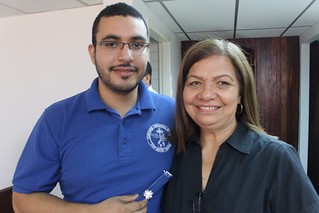 |
| Sergio Maita and Elsy Valladares de Machado. |
God has called every Christian to live not for himself but for Christ and his neighbor, living in Christ by faith, and for others through the love of God. The Word of God changes the identity of a human being from sinner and enemy of God to child of God through baptism (Romans 6:4). Every Christian has a vocation as a member of a family, as a citizen of his country, and also in the church. We speak in this regard on the priesthood of the baptized (1 Peter 2:9). Because of the blood of Christ, every believer has the right and responsibility to offer to God petitions, thanksgiving and sacrifices of thanksgiving. However, the Lord has instituted a ministry distinct from the priesthood of alll believers to which not all are called, the ministry of preaching and administering the sacraments. The apostolic doctrine emphasizes the centrality of both the preaching and the sacraments in Christian worship as the means of grace. The doctrine of the ministry delivers the gifts of salvation. The ordained ministry is a mark of the church (1 Timothy 3:1-7, Titus 1: 5-9).
"With regard to church government it is taught nobody should publicly teach in church or preach or administer the sacraments without a regular call. " Augsburg Confession, Article XIV. The Latin phrase for "legitimate appeal" is "rite vocatus." Rite vocatus is a public act and does not consist only of congregational authorization, but normally also involves the participation of called and ordained clergy (Luke 24:50-51; Acts 6:1-6, 13.1-3; 1 Timothy 4:14; 2 Tim 1:6-7; 1 Corinthians 16:1-4).
Luther Academy is an organization that promotes genuine, confessional Lutheran theology and research through conferences, scholarly exchanges, and publications that assist the church both to preserve and to proclaim to the world the Gospel of Jesus Christ, the only saving faith. Luther Academy Luther Academy is now presenting theological seminars throughout South America and Central America, and in West Africa, Uganda, Togo, India and Indonesia.
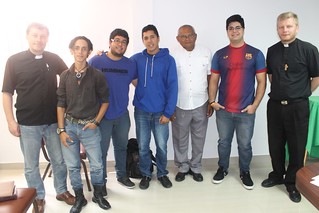 |
| Carlos Schumann, Bryan Noguera, Obed Coronado, Argenis Rivas, Abel Garcia, Carlos Loturco and Sergio Fritzler. |
Concordia Seminary of Buenos Aires is the seminary of the Evangelical Lutheran Church of Argentina, a partner church of the Lutheran Church - Missouri Synod. The seminary in Argentina is collaborating with Concordia Theological Seminary of Fort Wayne, Indiana, in offering a series of on-line courses for training confessional Lutheran pastors in Central and South America called "Pastoral Formation in Hispanic America". I am enrolled in this program and the seminar provided me the opportunity to meet four other men from Venezuela who are also participating: Bryan Noguera, Obed Coronado, Argenis Rivas and Carlos Loturco. Also I was reunited with Eliezer Angel Mendoza, a Venezuelan who has been attending the Buenos Aires seminary on a scholarship and who has now graduated.
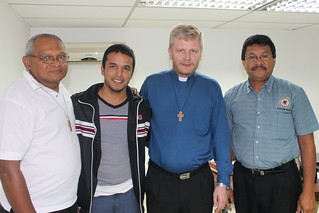 |
| Abel Garcia, Eliezer Angel Mendoza, Sergio Fritzler and Elias Lozano. |









